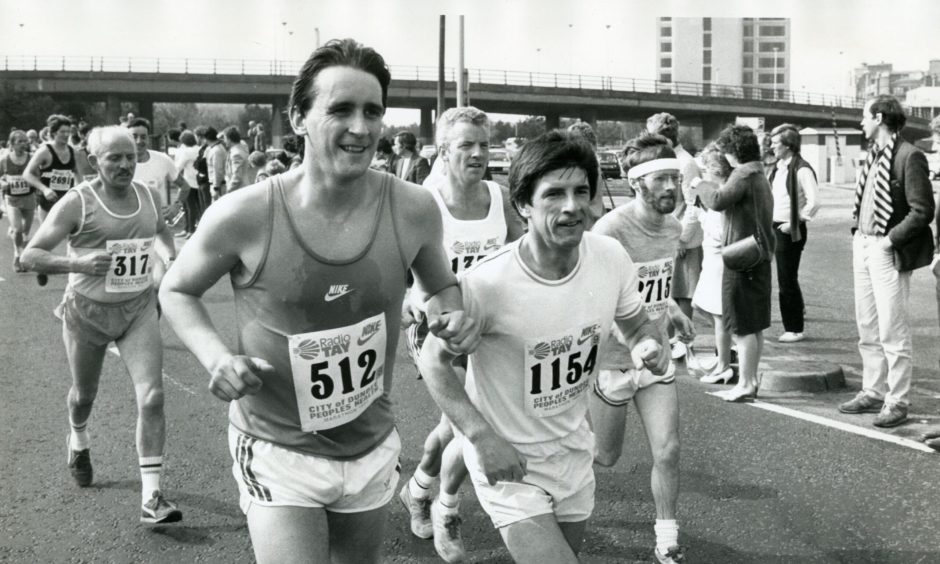
These photos turn the clock back to the 1984 Dundee Marathon, which was watched by tens of thousands of people.
Every inch of pavement, roundabout and traffic island was packed with spectators.
Everyone knew somebody and much of the fun was in spotting a neighbour, workmate or relative in the stream of runners pounding past.
Some people cheered the 2,000 runners on from 1,000 feet.
The Coconut Grove nightclub organised flights at £7 a time from Dundee Airport to raise money for a full body scanner for Ninewells Hospital.
The Dash 7 airliner carried 350 people of all ages on seven pleasure flights.
It was, above all else, a people’s marathon.
Don Macgregor was the man to beat
Entry numbers were up on the inaugural Dundee Marathon in 1983, which was won by Don Macgregor, who competed in the 1972 Olympics.
The 44-year-old Fifer returned to defend his title in 1984.
Souvenir t-shirts were being sold from the Dundee Runner Shop in Logie Street alongside a range of patch badges and towels.
The 26-mile course saw 40,000 paper cups, 30 gallons of orange juice and 10,000 sponges at each of eight feeding stations.
There were 13 bands performing along the route.
The number of women entering the event increased from 85 to 465.
Among those taking part was Frank McFadden from NCR in Dundee who designed the medal being awarded to each competitor — himself included.
Dundee bathed in balmy sunshine, which brought out the best from the runners.
Dundee FC manager Archie Knox and Dundee United captain Paul Hegarty were the official race starters and fired the pistol at 10am.
The Courier said cooling breezes off the River Tay made conditions easier for runners in the first testing half, which was close to the waterfront.
But it was over the second half of the course where many encountered problems.
The temperature rose to 20 degrees in sheltered stretches through the housing estates, where runner after runner was forced to adjust their pace.
Medical stations along the route were pressed to cure pains and strains in double quick time to allow the hardy souls to continue without delay.
One runner pounded the streets with broken ankle
A quick turnaround was not possible for some.
Dundee docker Bill Gaffney ran for more than seven miles with a broken ankle after going over a manhole cover in Marketgait.
He ran on to Broughty Ferry without realising the severity of the injury.
“It was then that the pain really hit me,” he said.
He was given treatment before being taken by ambulance to Dundee Royal Infirmary.
More than 300 of the 2,000 men and women who set off from City Square at 10am required medical attention and 70 casualties were forced to drop out.
Ailments ranged from cramp to exhaustion.
Only three runners required hospital treatment including Mr Gaffney.
But for the majority of entrants it was a day to remember in the sunshine, as they were cheered on their way by vast throngs of shirt-sleeved onlookers.
Terry Mitchell took the lead in 1984 Dundee marathon
The race was won for the second successive year by Don Macgregor, who crossed the line with a time of two hours 18 minutes and 16 seconds.
Charlie Haskett from Dundee Hawkhill Harriers was second with a time of two hours 18 minutes and 41 seconds.
Macgregor’s Fife Athletic Club team-mate Murray McNaught was third and finished in two hours 19 minutes and 44 seconds.
The pack ran together for the first few miles until Terry Mitchell and Charlie Haskett pulled away from Macgregor along the outer roads from 15 miles onwards.
Macgregor said: “I did not think I would be able to catch Terry, but somehow reeled him in, then went after Haskett.
“I passed him as we started the downhill, and he couldn’t respond sufficiently to stop me building up a slight lead – I didn’t look back until the bottom of the hill.
“I crossed the line considerably less fresh than in 1983, 25 seconds to the good.
“Charlie was obviously disappointed, but I was relieved, rather than exultant.”
A lovely gesture from winner Don Macgregor
Thousands of people crammed into Nethergate and High Street for the final stretch.
It became a double celebration when Macgregor’s wife, Kim, crossed the line in three hours 25 minutes and four seconds.
They won the trophy for being the fastest married couple.
Macgregor then opted to give up the prize he would also have won for being the fastest veteran so the trophy went to 45-year-old Henry Muchamore.
Muchamore was running to raise funds for the British Heart Foundation.
His mother died from heart disease in Dundee in 1977.
It was a touch of class on Macgregor’s part.
The fastest woman was Fife mother-of-two Margaret Baillie from Burntisland, whose time was two hours 51 minutes and 32 seconds.
She won by 16 minutes from 1983 champion Marjorie Thoms.
“I’m overjoyed, never expecting to do as well as this,” she said.
“The training I’ve done for the race was hard but it has all been worthwhile.”
There was tragedy and triumph in 1984
But there was tragedy, too, for a young police officer from Dundee.
PC Michael Money completed the course in three hours 37 minutes and 24 seconds.
A colleague broke the news after the 25-year-old crossed the line that his father had died suddenly at home while the race was taking place.
Dave Wilson made amends for his abrupt departure from the 1983 marathon where he collapsed within shouting distance of the finish line.
The 46-year-old finished with a time of three hours and 10 minutes.
It was a personal best.
Dundee student Christopher Davie was the last runner over the line within the official time limit of six hours and 30 minutes.
The 22-year-old was presented with a print of Old Dundee High Street by the local artist and illustrator Douglas Phillips.
Mr Phillips said the reason for the gift was he thought it was a shame only the top runners and celebrities got, as he put it, the “publicity and back-slapping”.
The last entrant home was 36-year-old Isobel Reid from Monifieth.
She finished in in six hours 56 minutes and was raising money for Guide Dogs for the Blind.
Dundee marathon entrants raised £133,000 for charity in 1984
The only mystery of the day surrounded the apparent disappearance of George Stewart from Arbroath, who was the oldest competitor at 77.
There was no sign of him as officials packed up at 5pm.
Some runners spoke of seeing him take a rest at the 13-mile mark on Drumgeith Road.
Officials considered it likely he decided to call it a day there or soon after.
There was no such mystery about the biggest winner in 1984.
Competitors raised more than £133,000 for local and national good causes.
By the mid-1980s, most major cities were hosting marathons before the bubble burst.
The Dundee Marathon swiftly ran out of puff and the final race was held in 1991.
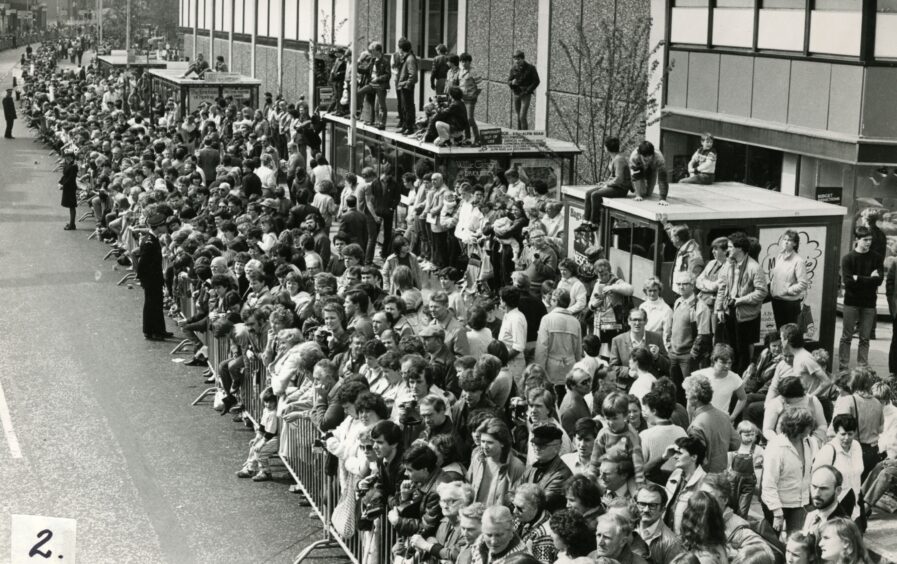
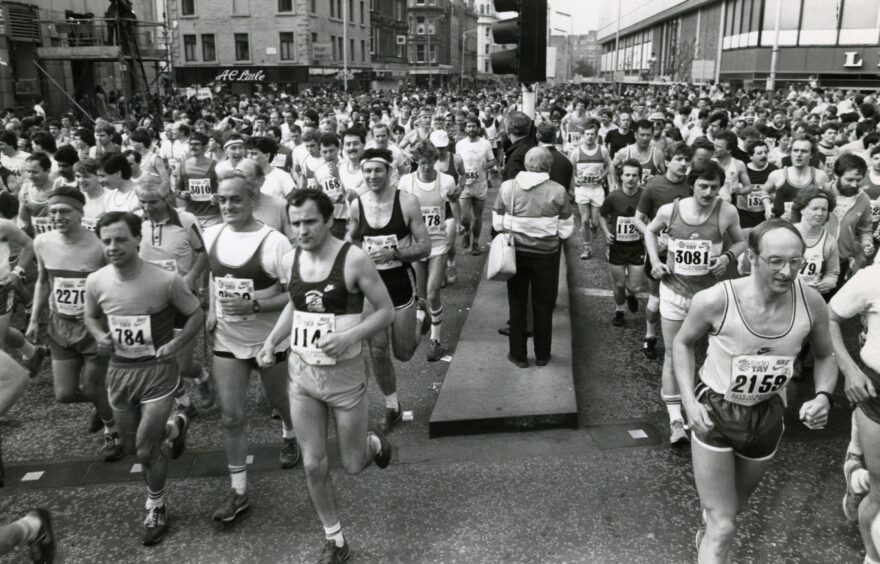
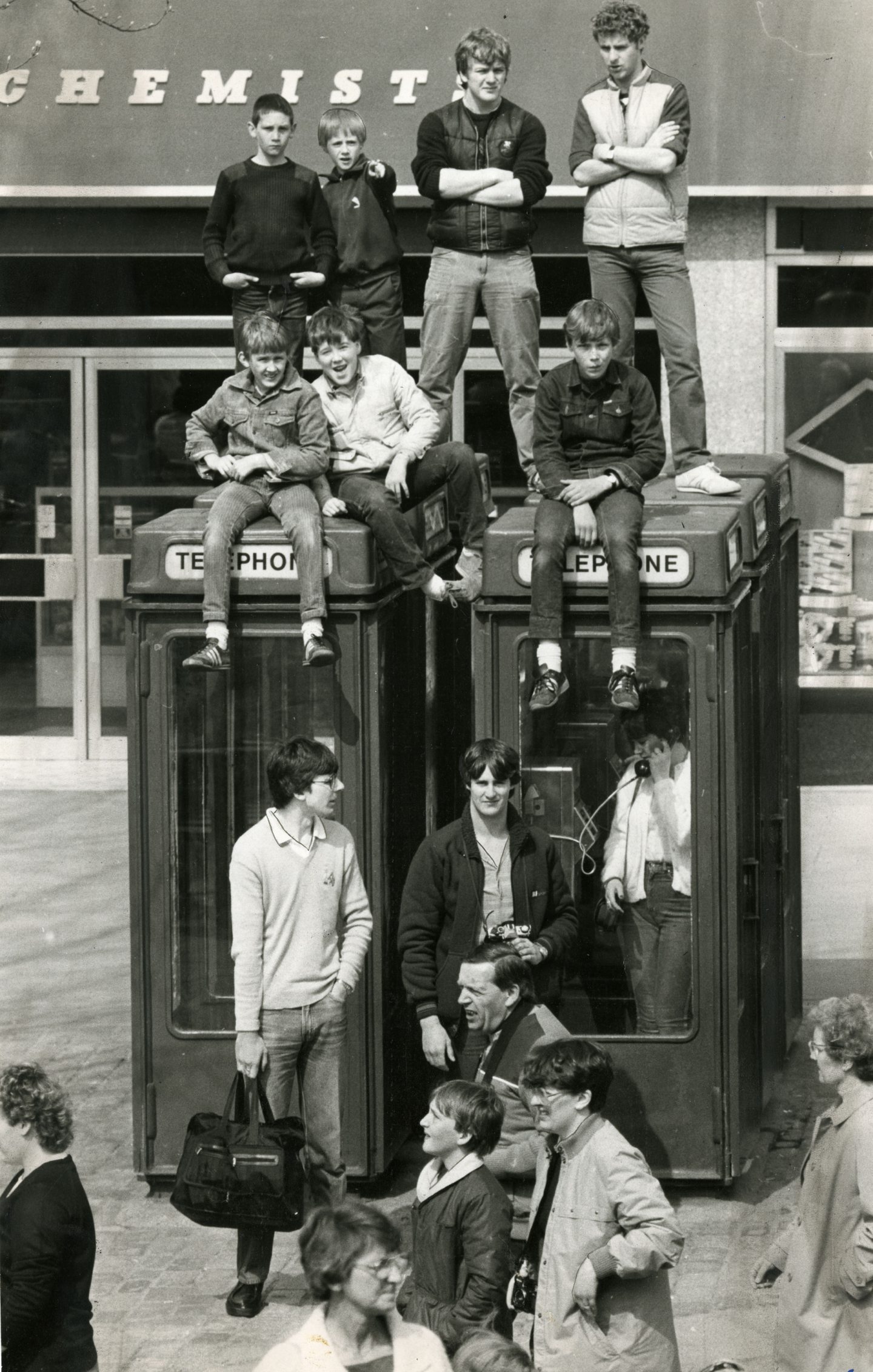

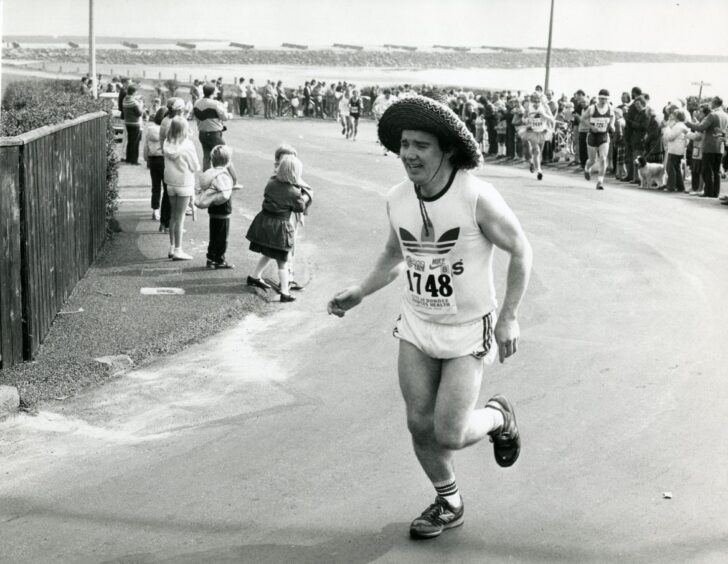
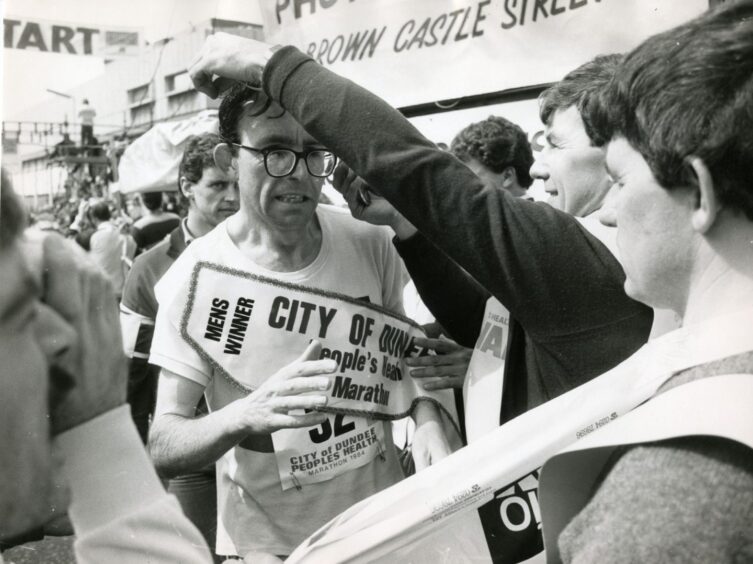
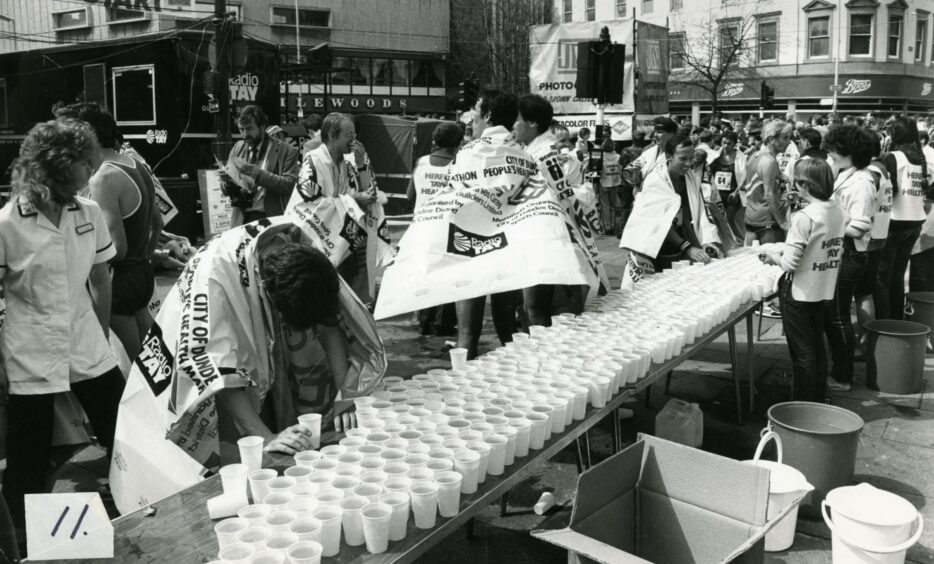
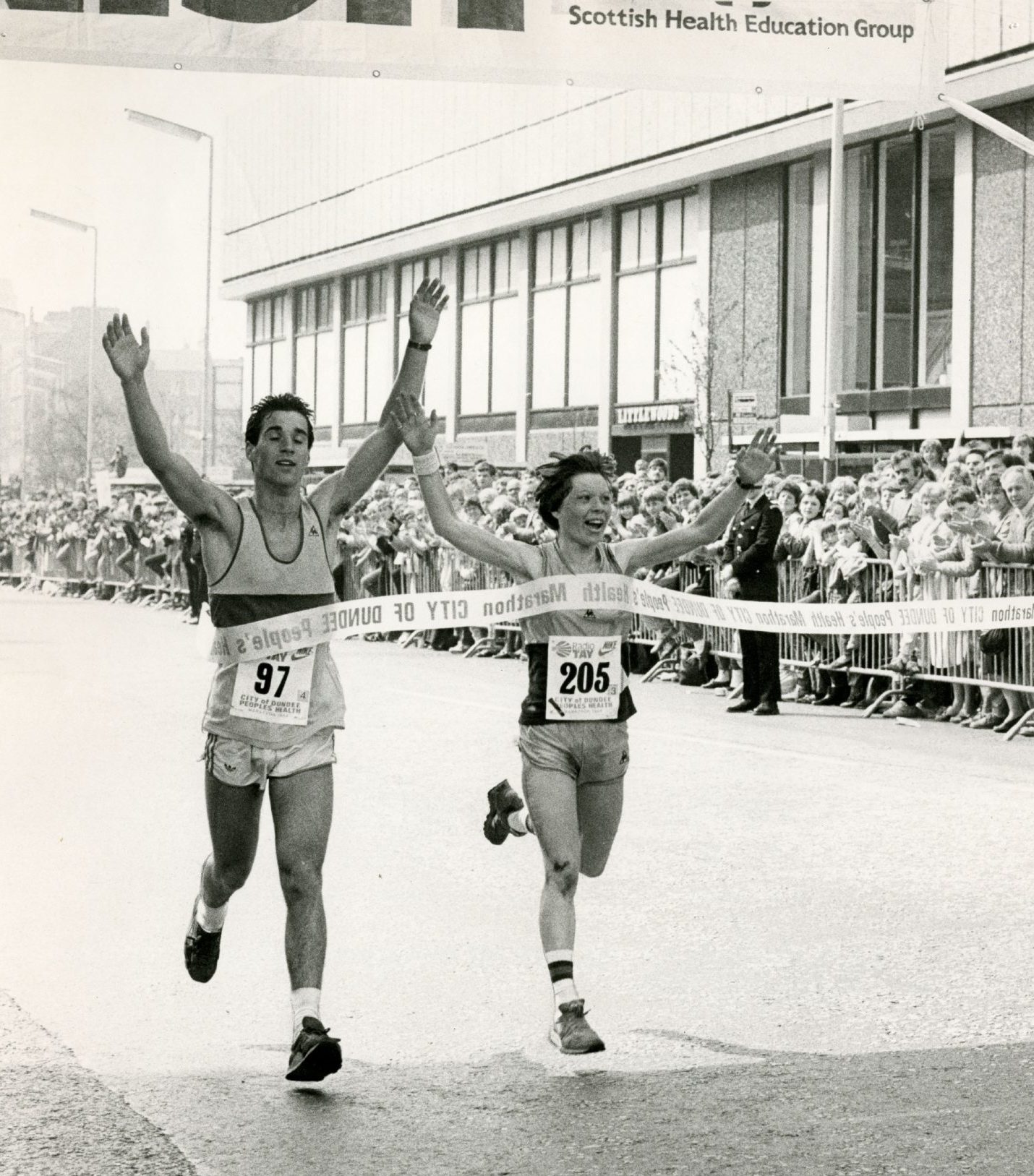
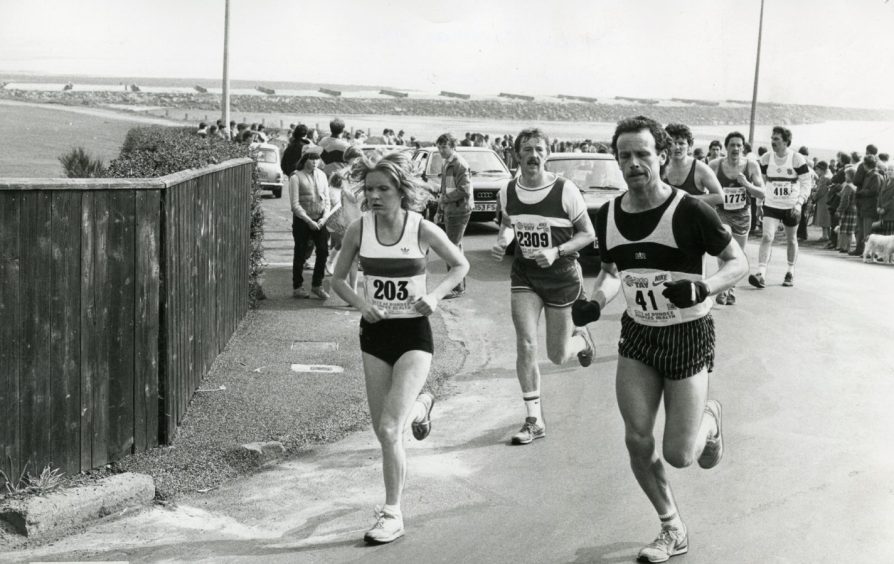
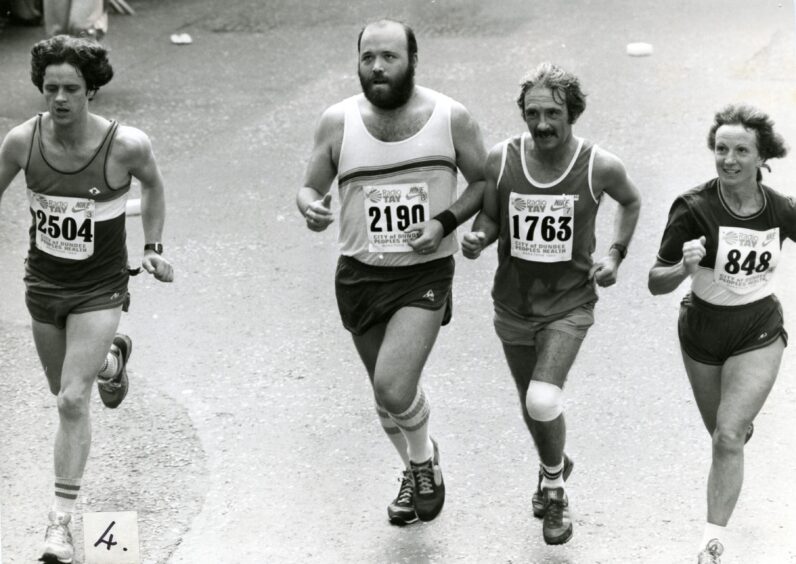
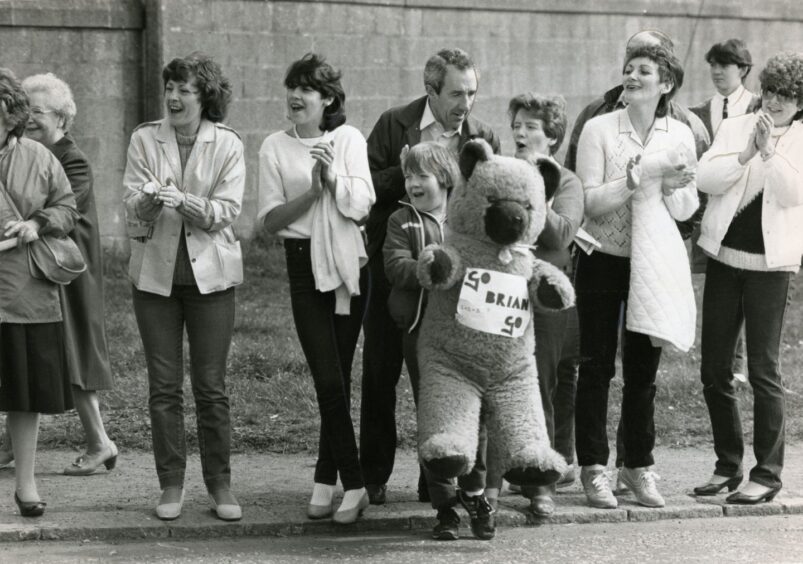
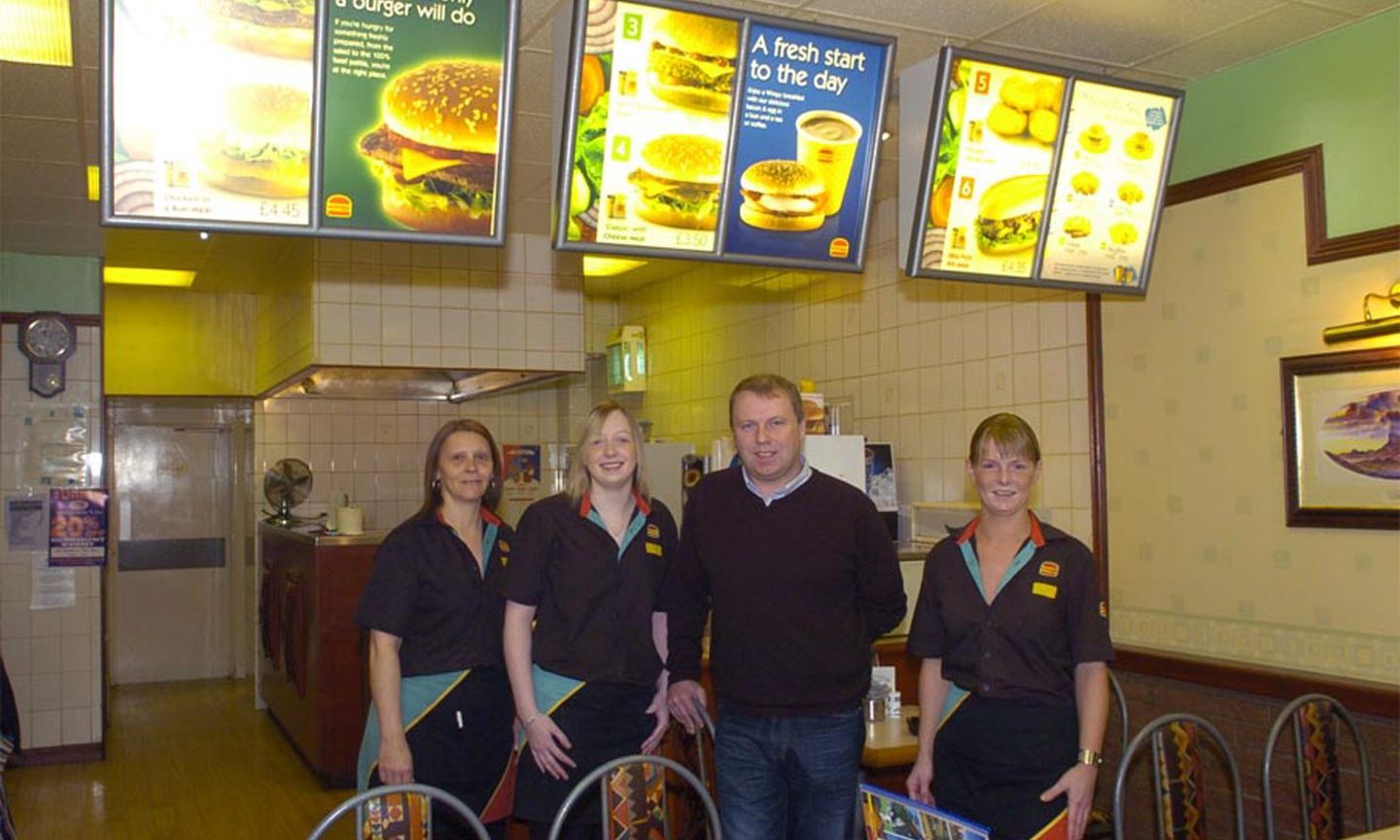
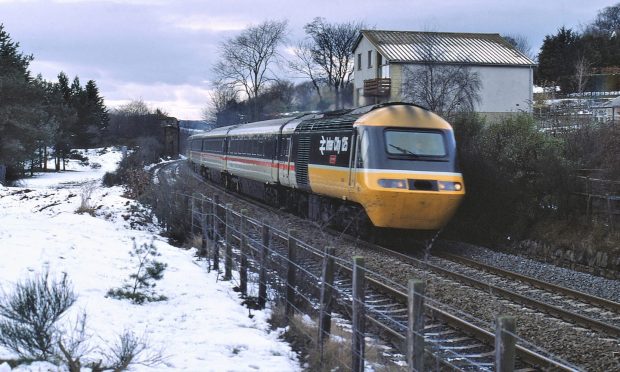
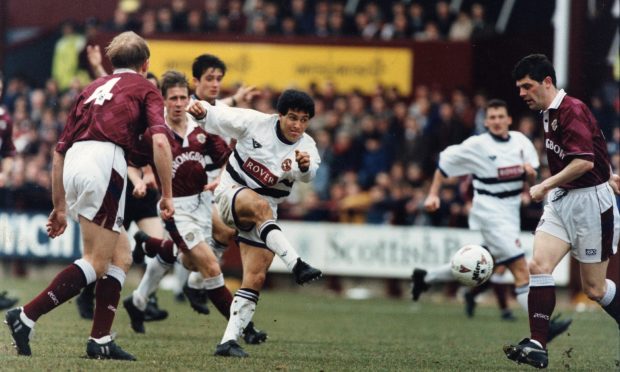
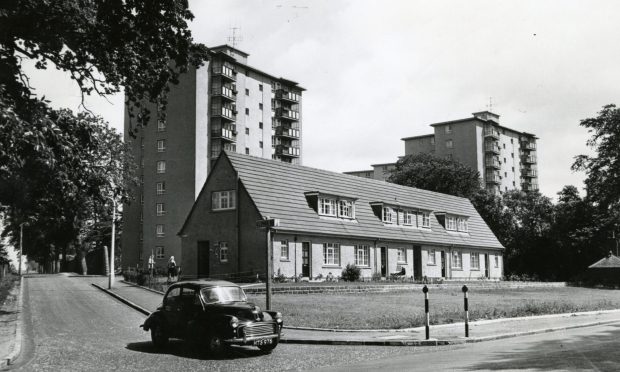
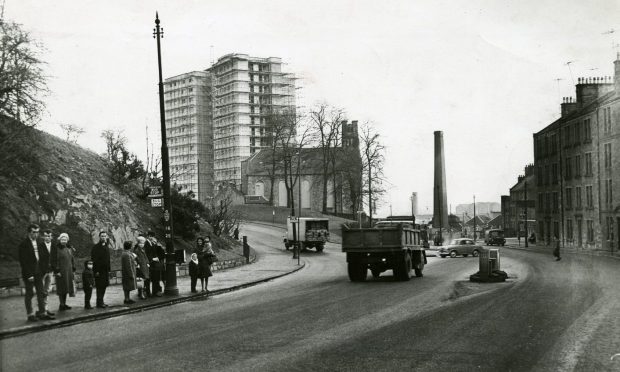
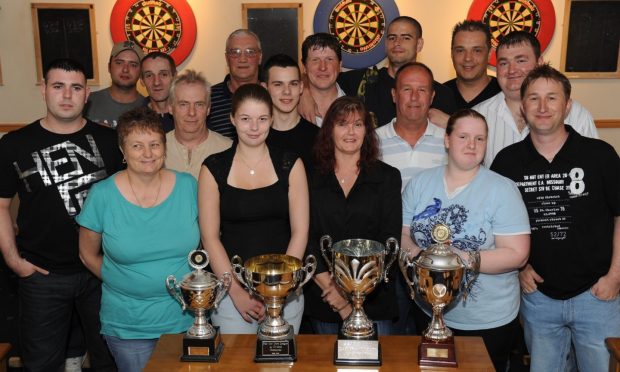
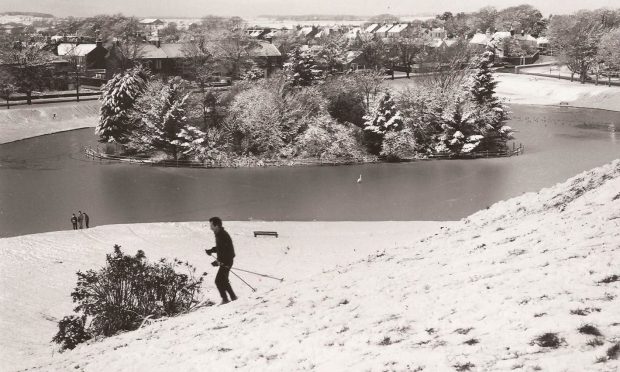
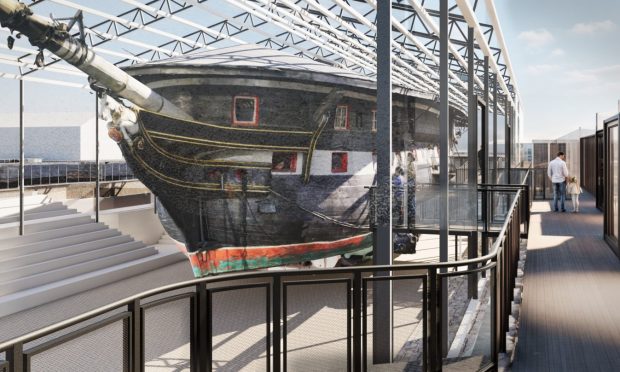
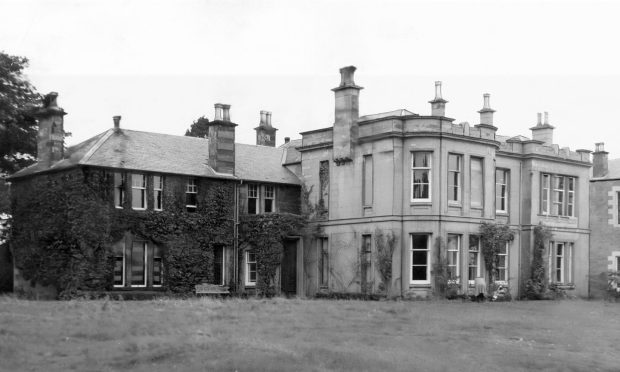
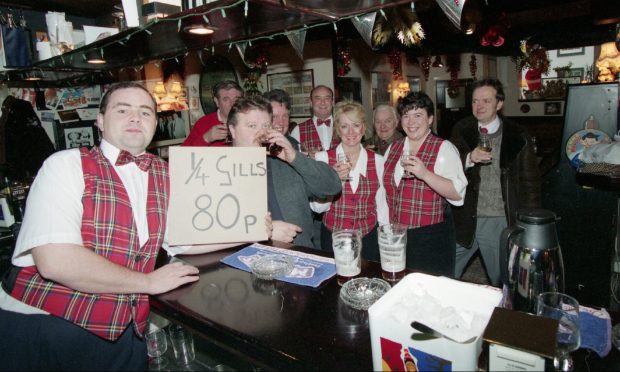
Conversation